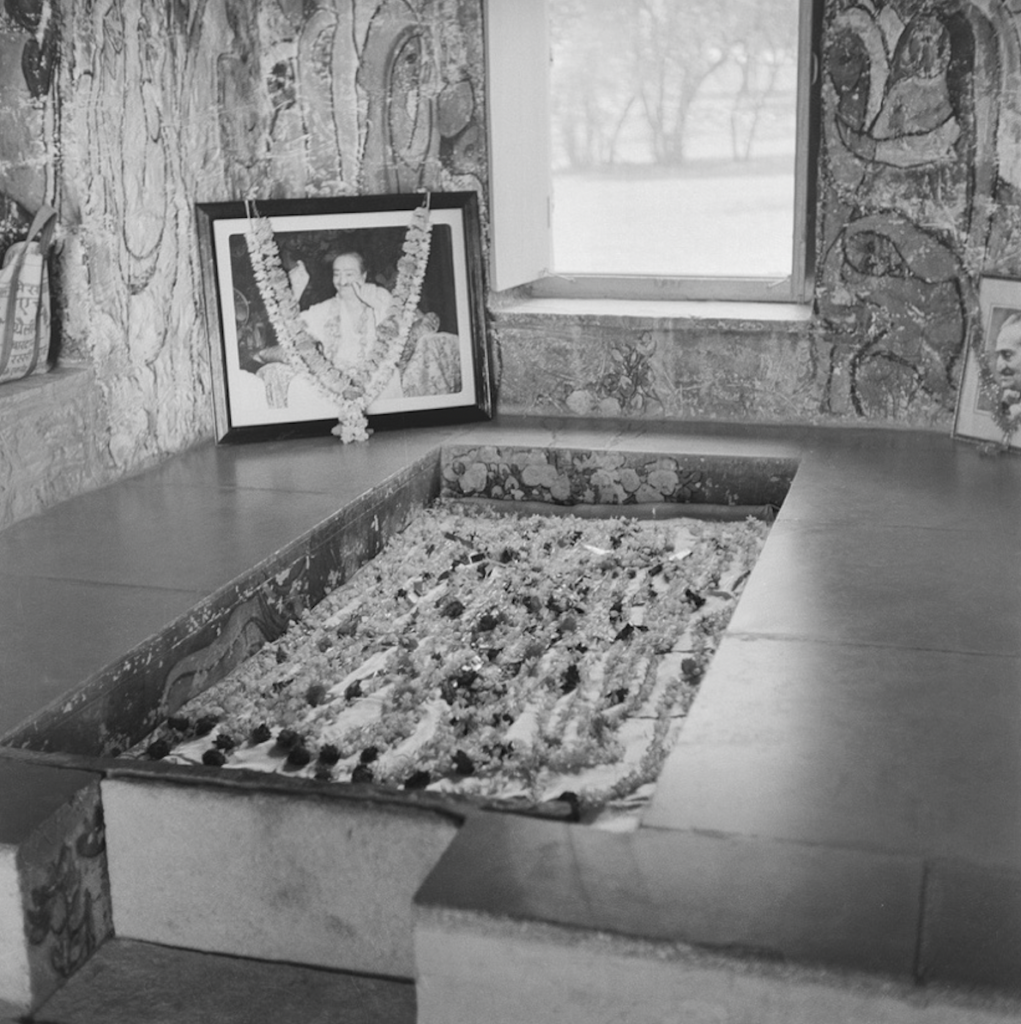
January 28, 2022
What a Mighty Beloved
On the morning of February 1, 1969, seventeen-year-old Wendy Haynes was busy making peanut butter and jelly sandwiches for Happy Club, the Saturday gathering for some local children at the Center, when she received a call from Kitty Davy to rush to Dilruba to see Elizabeth Patterson. Wendy did not rush. The phone rang again. This time, firmly, Kitty asked why she had not left yet. Well, of course Wendy had thought she would go after Happy Club. “There won’t be Happy Club today,” came Kitty’s stark reply. Wendy’s heart went to the bottom of her stomach. Right away, she ran to Dilruba.
She found Elizabeth on her bed with two big teardrops streaming down her face. One under each eye. Elizabeth was woken up at four in the morning with a clear knowing of the words, “I know that my Redeemer liveth.” It was a verse from the Bible and also one of Elizabeth’s favorite hymns. A memorable event followed when the Western Union cable guy who had always delivered cables from India said to Elizabeth, “Miss Patterson, of all the cables I have given you, this one I don’t want to deliver.” But Elizabeth had already heard the news within. The Cable was from Adi K. Irani, Baba’s Secretary. It read: “AVATAR MEHER BABA DROPPED HIS PHYSICAL BODY AT TWELVE NOON 31 JANUARY AT MEHERABAD TO LIVE ETERNALLY IN THE HEARTS OF ALL HIS LOVERS. BELOVED BABA’S BODY WILL BE INTERRED AT MEHERABAD ON 1 FEBRUARY AT 10 A.M. IN THE TOMB HE HAD ORDERED TO BE BUILT LONG AGO.”[i]
Kitty Davy, another Western Mandali who was left behind in Myrtle Beach by Baba, also received the news alongside Elizabeth. “I was stunned but did not experience loss. I felt strongly that Baba was present where we were. I remembered the words from the Bible that came to remain with me more strongly than ever, words which daily seem a part of my being. ‘I live, yet not I, the Christ liveth in me,’” she wrote in her book.[ii]
Jane Haynes, who happened to be in Atlanta, was called by Elizabeth. “Oh Joy,” was her first response because she instantly thought of Baba’s suffering and His final release from it.
After making these essential calls, Elizabeth and Kitty got right to work in this supercharged atmosphere. While solemness enveloped the day, they did not let it paralyze them. They were trained in Baba’s way: to stay busy, to do what would please Him. Elizabeth felt that her work was to call and inform all the Meher Baba group heads across the country so that they could spread the news.
At the Center, she called a meeting of the nearby community to share the ungraspable news of the physical death of God. Tears, sadness, and shock gripped His young lovers, especially the ones who were to meet Him in the spring of that year, for the very first time, at a darshan called for by Him. Obviously, the question arose if they should rush to India, to see His body for the last time. While this was later discouraged by the Mandali in India, at the time Elizabeth had the same instinct: to not go in order to honor the invitation Baba had given earlier for the darshan program later that year.
Despite Baba’s dropping the body, the darshan still happened. The story of the Last Darshan, or the Great Darshan as it came to be called, and that of Amartithi go hand in hand. They cannot be separated as two events, and if we must separate them, then we cannot miss the obvious thread of His epic presence in the spirit running through these events. Wendy shares, “At the Last Darshan, we were to go to Baba’s tomb. I was dreading it, because you see at the end of the East-West Gathering Baba had us go to the tomb. There we were, leaving His radiant form to go to a cold, dank crypt. But, when we went in 1969, as soon as I crossed the threshold, I felt a wave of joy. I heard Baba say, ‘I haven’t gone anywhere. I am always with you.’ For me, it was the beginning of my inner journey.”
Amartithi raises the glaring question in many: How could God die? But the answer could be found in another question: Where does God live? At the Great Darshan, where His lovers went thousands of miles to bow to the Beloved in their hearts, Francis Brabazon called this act of their coming “an entirely different order of devotion.” He went on to say, “He required a few to do what the many, what everyone, must eventually do: journey across the world of illusion to take darshan of Him in their hearts. What a Beloved is our Beloved; what a mighty Beloved.”
On the first anniversary of this eternal date, Brabazon, now himself thousands of miles away in Australia, said, “By His act of dropping His body He showed that He expected us to seek His Reality, and He challenged us to measure up to His expectation … He came in order to go; and He went so that we could come.”[iii]
[i] Love Alone Prevails, by Kitty Davy, p. 674
[ii] Ibid.
[iii] Talks by Francis Brabazon, Courtesy of Avatar’s Abode Trust